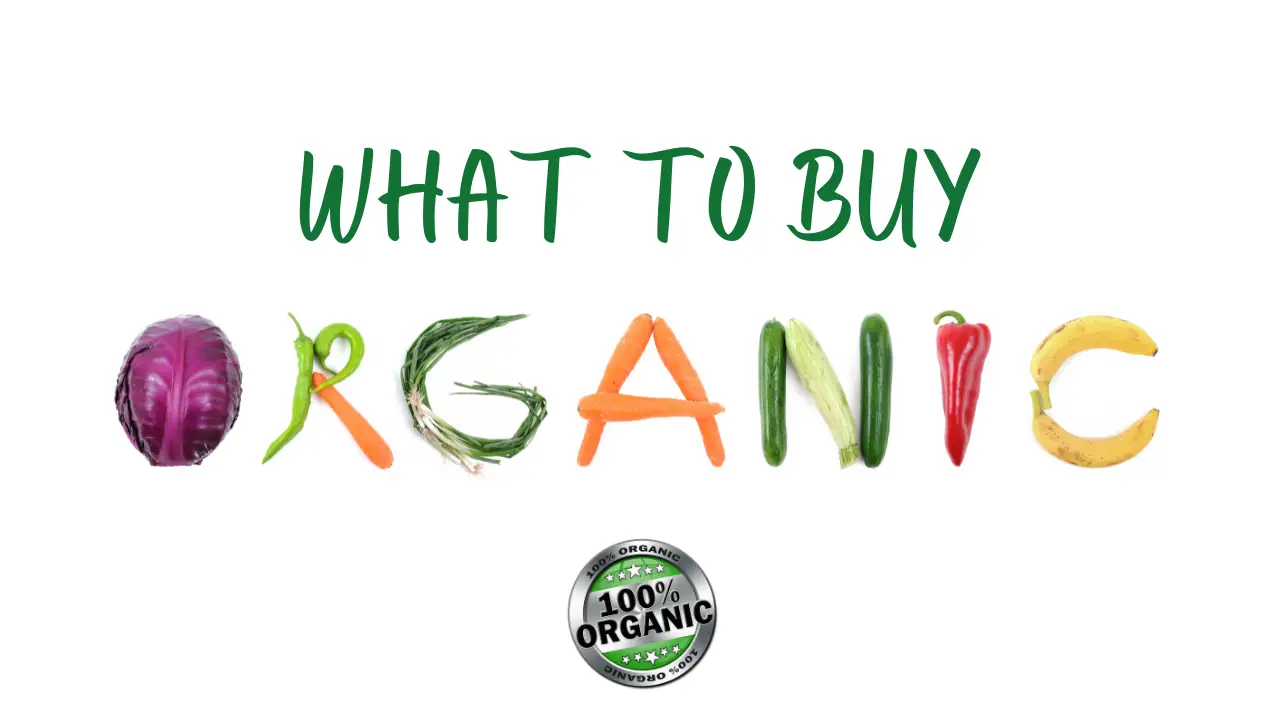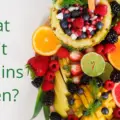The organic lifestyle is a craze, especially as more and more experts recommend it. Everything today is bursting with chemicals, from skincare to wall paints to foods.
There are endless disadvantages of the over-excessive use of chemicals in almost every product.
Now more than ever, it's necessary to understand the importance of organic items, especially foods. And not only that but also to navigate your way through the organic lifestyle shift.
Organic VS. Conventional – What's the Difference?
It's a debate that has become the root cause of heated arguments and controversies- organic or conventional? To add your opinion to the discussion, you first need to know the difference. The primary difference lies in the farming, or as they say, agricultural methods of growing the produce.
As the name suggests, organic foods do not undergo exposure to chemical substances during the farming process. Neither the soil is contaminated with chemicals, nor is the crop or plant sprayed.
Farmers use a combination of natural pesticides and fertilizers. The first is to keep pests from damaging the crops, and the second is to speed up the productivity and growth rate.
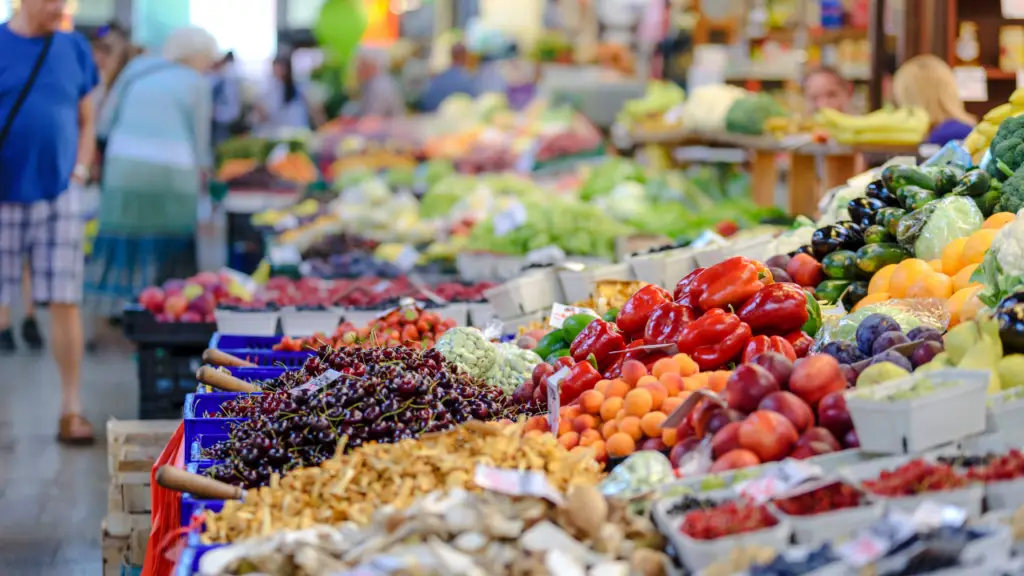
Natural pesticides usually include essential oils and plant extracts. Meanwhile, non-chemical fertilizers are biodegradable waste materials.
You might've already guessed what ‘conventional' means if you weren't already familiar with the term. Let's define it nonetheless. The basic concept behind conventional produce is similar to organic produce but with a contrasting methodology.
With conventional foods, farmers utilize chemical substances like pesticides and fertilizers. The added benefit of chemical products is that they're more readily available and cheaper.
Plus, in some foods, chemicals accelerate the rate of production much faster than organic fertilizers. These chemicals aren't great for your health, especially when consumed frequently, but they take lesser time and effort.
Hence, the end product is comparatively cheaper than organic substitutes too.
Why Buy Organic Produce?
Foods are one of the first steps to a natural, organic lifestyle. The word ‘organic' may make you think about all things healthy and nutritious. They are, too, undoubtedly. Organic produce is the best kind when you've decided to minimize the chemical usage and input, in whatever manner, daily.
Organic produce is safe from excessive chemicals and artificial substances, bringing numerous benefits.
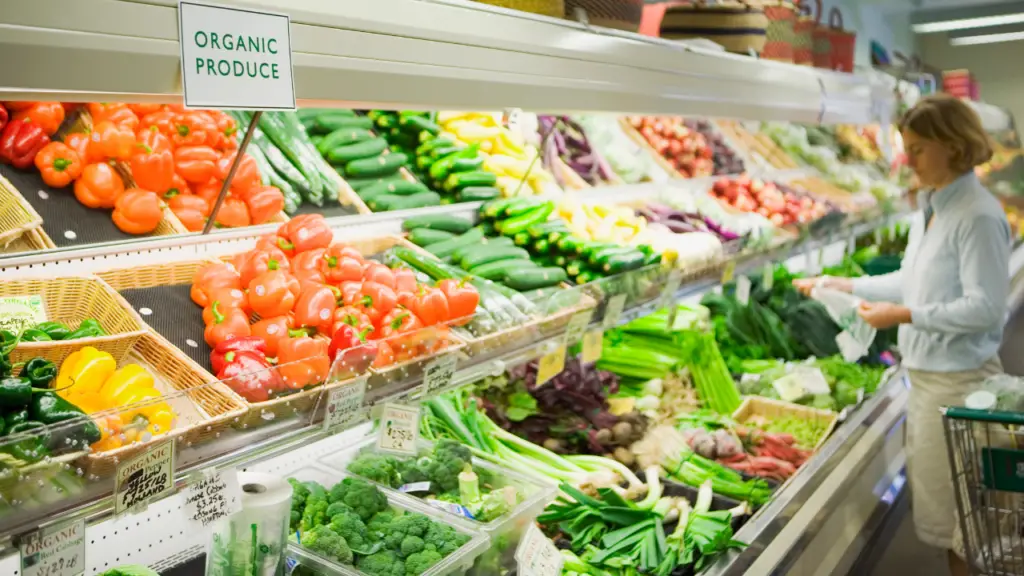
Firstly, a factor we'll be discussing throughout this guide, organic produce contain lesser pesticides than their locally-grown alternatives. The constant worrying about foods contaminated with harmful toxins is significantly reduced.
Organic farming decreases the risk of livestock animals being injected with growth hormones. These and other hormones find their way into the bloodstream and contaminate animal byproducts like dairy. The overall nutritious approach of raising, growing, and processing organically grown foods make them healthier.
That's not where the road of organic food advantages ends, though! A renowned element of organic produce is better for the environment. The soil is preserved in its natural aspects without repeated subjection to toxins.
Lesser chemicals mean the ground and the surroundings are less damaged by chemicals that otherwise have harmful effects. Another lesser-known significance of organic produce is that it requires more on-ground workers.
Conventional produce decreases the need for workers to harvest the crops where chemicals contribute to most of the work. Therefore, organic farming is a labor-intensive process that boosts the necessity of farmworkers, providing them with a stable income source.
Is Organic Produce Pesticide-Free?
Let's get one misbelief out of the way; organic produce is NOT pesticide-free. Yes, they decrease the pesticide residues by a considerable value. However, this doesn't account for them being completely free of pesticides.
Depending on the natural pesticide the farmers go for, various organic foods may contain some amount of pesticides. Usually, substances such as lime sulfur and hydrogen peroxide contaminate organic produce.

But the thing is that organic produce still does contain pesticides, although 4x less than conventional, according to 2014 reports. Before you start blaming the agricultural industry, a small number of pesticides are essential for farming.
Without them, pests crawl all over the plants, making them difficult to grow. So, to conclude, organic produce is not pesticide-free, but it's healthier in terms of lesser and natural pesticides.
When Should You Go For Conventional Produce?
Organic produce is healthier for your body but worse for your pocket. We don't put it mildly when we say that there's a hefty comparison between the prices of organic and conventional foods.
When consumers learn about food products heavily contaminated with pesticides, they eliminate them from their diet. Most of these, also contributing to the “must-have organic foods” lists, are fruits and vegetables essential for a healthy lifestyle.
So, what we're saying is, rather than going on a contaminated-foods ban, go for conventional when you need to.
The CDC recommends eating about 2 cups of fruits and 3 cups of vegetables daily. Extensive studies by this organization show that only 10% of Americans fulfill this dietary requirement. The other 90% eat little to no vegetables regularly, contributing to numerous deficiencies and diseases.

On the flip side, sometimes, filling the cart with organic produce isn't as beneficial as you'd think. It's the foods that are more or less the same in pesticide percentage and nutritional value, whether organic or conventional.
There's more to this discussion down below. For now, here's what we have to say- When you can't meet the financial expenses of going fully organic, add conventional produce. This way, you won't miss out on the essential nutrients.
What's With the “Dirty Dozen” and “Clean 15” Lists?
You might be accustomed to their popularity if you've heard of these lists.
They are two lists released annually by the EWG since 2004.
The EWG (Environmental Working Group) is an American nonprofit organization. The organization aims to contribute toward a healthier lifestyle, mainly water and agricultural contaminations and toxins.
The EWG reinstates that the US EPA guidelines on pesticide usage on fruits and vegetables are lenient. In other words, most pesticide residue amounts in locally available produce fall below EPA guidelines. However, they're in such large quantities that they are extremely dangerous to our health.
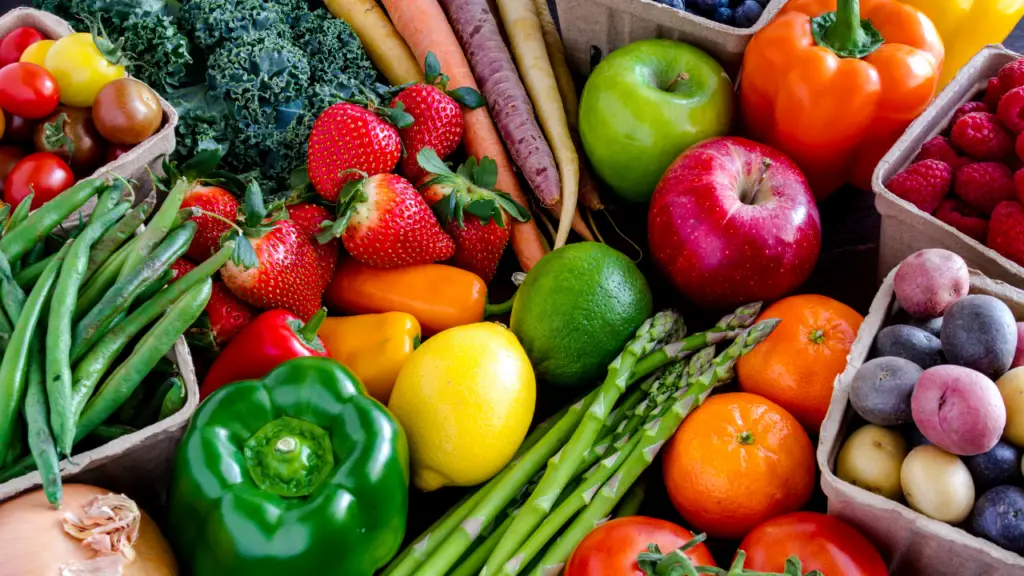
The EWG has formed and updated a list of the 46 most consumed fruits and vegetables and their pesticide average. According to the pesticide amount, these items are listed from most contaminated to least contaminated. The most contaminated fruits and veggies are included in the “Dirty Dozen” list, and the least in “Clean 15”.
The method utilized by the researchers is to buy local fruits and vegetables. Next, they are rinsed, peeled, and then tested for pesticide residue. The scores depend on numerous factors, including:
● Percentage of samples with more than one detectable pesticide
● Maximum number of pesticides on a single sample
● Total number of pesticides on the crop
● The average number on a single sample
● The average amount in parts per million on that fruit or vegetable.
An esteemed organization rendering a list that puts locally grown suppliers out of business does not come without controversy. Many researchers and experts overthrow the credibility of these lists by stating that the numbers are exaggerated.
Others say that the Dirty Dozen list, in particular, discourages consumers from eating fruits and vegetables at all. It's riskier than consuming locally grown produce. Another group says that a balanced intake brings no harm if the pesticides are below EPA guidelines.
While others question EWG's credibility, considering citrus fruits are one of the highest contaminated fruits. But, still, they do not make it to the list.
One thing is for sure, the Dirty Dozen and Clean 15 do provide an extensive overview of fruits and vegetables. And, when the Dirty Dozens are eaten in more than the recommended amounts, it's sure to wreak havoc.
Work your way through instead of becoming intimated by these lists or disregarding them completely. Understand which conventional foods are okay and when to never compromise on organic.
Dirty Dozen List
Strawberries:
Strawberries have been topping the Dirty Dozen List for a long time. In 2022 it was the 6th consecutive year that strawberries were declared the dirtiest fruit by the EWG. The experts and toxicologists at EWG found that pesticide residues contaminated almost 99 percent of the strawberry samples collected.
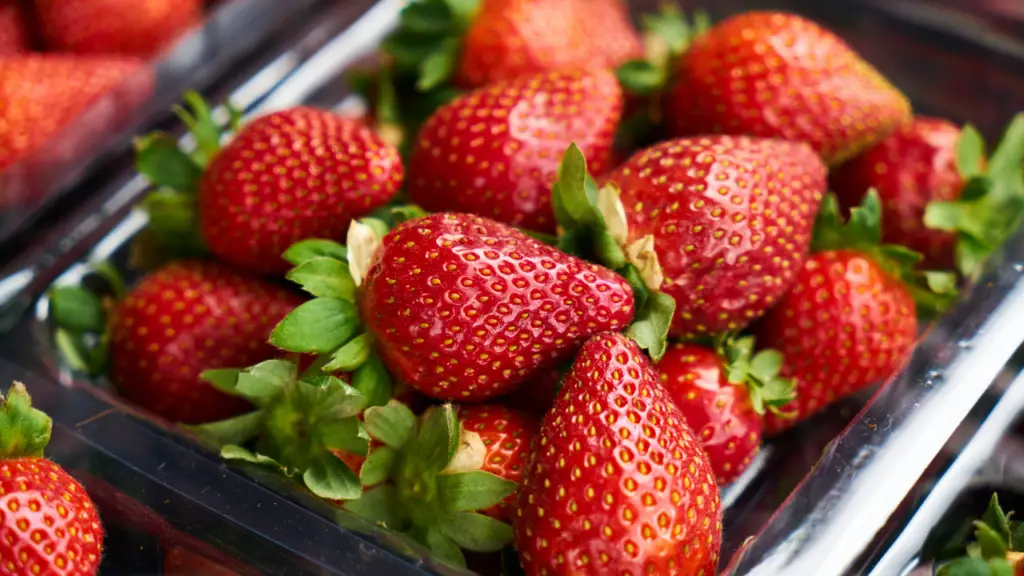
Nearly 30 percent had more than ten different pesticides used on them. Meanwhile, the dirtiest sample had 22 different pesticide residues. A total of 81 different pesticides were being used on strawberries collectively. One of these residues has devastating effects on the male reproductive system.
This pesticide was contaminating 16 percent of the tested strawberries. An insecticide was found in 29 percent of the samples analyzed, potent enough to cause cancer in humans. So if there's one fruit that has to be bought organic without any hesitation, it's strawberries. The extra cost is truly justified for peace of mind.
Spinach:
Spinach leaves are light, weigh way less than other fruits, and absorb pesticides effectively. Even still, spinach containing the highest pesticide residue by weight compared to different samples analyzed is alarming.
A pesticide that is harmful to the human nervous system was found in several samples. EWG found that 97 percent of the spinach samples tested had pesticide residues.

Consequently, conventional spinach is a poor choice compared to the organic variety. But the good thing is, that getting organic spinach is relatively easy. The fresh produce sections of various grocery stores have organic, frozen, and baby spinach.
Fresh, organic spinach gives your salad an exquisite taste. Even when it's not in its raw form, you can add it to smoothies, pasta, and soups to give them a heavenly taste.
Kale, Collard, and Mustard Greens:
Kale wasn't a dirty fruit for a long time until it became a member in 2020. After a recent discovery, EWG researchers found that 60 percent of the samples contained the herbicide DCPA.

It harms the thymus gland and liver and is also a potential carcinogenic agent. In some people, it has also caused reproductive problems and skin damage. The same pesticide also contaminated collard and mustard greens. Hence, buying organic kale, collard, and mustard greens are essential.
Nectarines:
EWG clarified why people should prefer organic nectarines over conventional nectarines. In last year's report, the experts and toxicologists have confirmed that 94 percent of the traditional varieties had pesticide residues.
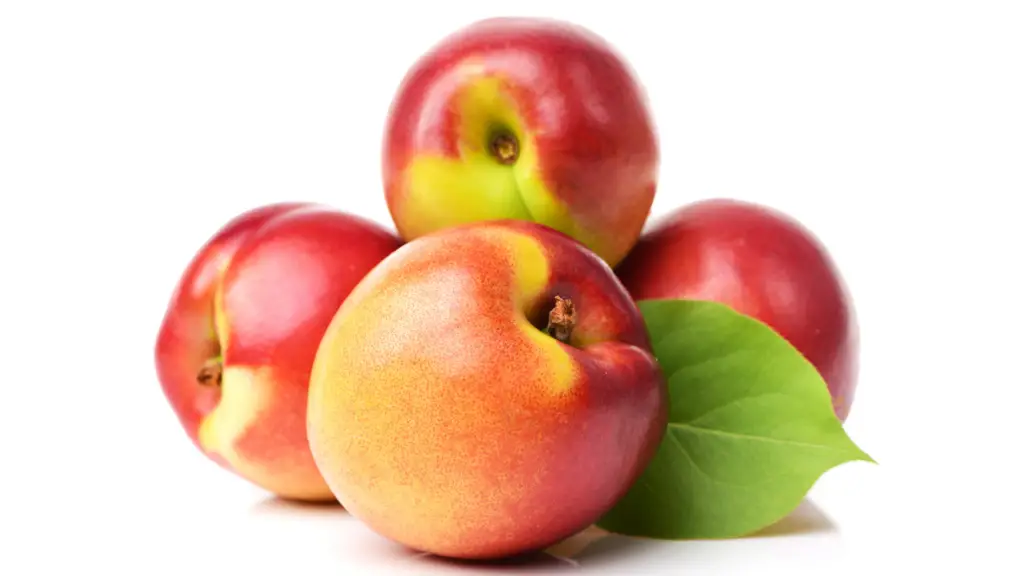
Among those contaminated, many had more than 4-5 different pesticides, while one sample even had 15 other pesticides. So before you take that first juicy bite, make sure the nectarine is organic.
Apples:
Apples are supposed to keep the doctor away. But, that isn't possible if they're loaded with such harmful pesticides that they're banned in Europe. Apples don't have a robust and thick peel to protect the edible insides from pesticides.
Furthermore, their concave shape helps trick the pesticide into the core once it has adhered to the peel. Even thorough washing doesn't help out in this case. EWG included apples in the Dirty Dozens because 90 percent of the apples had traceable amounts of pesticides.
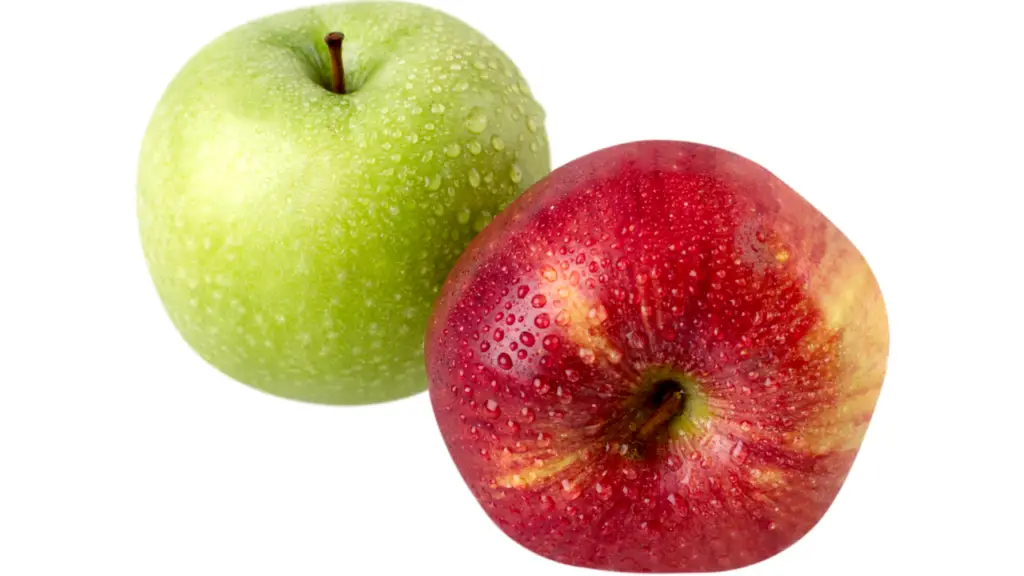
They also observed that 80 percent of the samples had the same pesticide prohibited from being used in Europe. Hence, EWG wants you to eat an organic apple a day, which is bound to keep the doctor away. It's the only way you'll be able to eat healthy, uncontaminated apples.
Grapes:
Grapes: Grapes have a nasty reputation. The samples tested by the EWG had detected an average of 5 different pesticides used on each grape. Only 4 percent of the grapes didn't have pesticide residues.
The rest were contaminated by toxins that are often the source of disease and complications in consumers. Grapes have a sweet taste, attracting so many insects and mold.
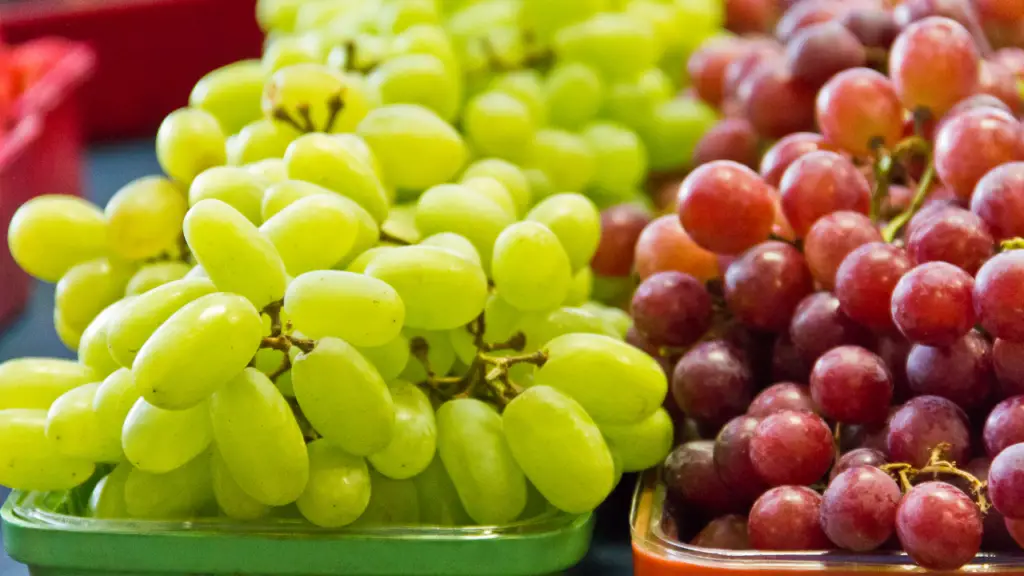
For this reason, farmers resort to using pesticides while conventionally growing grapes. People typically eat a bunch without washing them thoroughly, putting their health at significant risk.
The EWG has stressed how important it is to use organic grapes instead of conventional ones. Some people show more precaution and even choose their wine from the organic aisle.
Cherries:
Although they can be expensive, choosing organic cherries is almost a necessity. EWG shed light on the grave situation that cherries are very dirty fruit. In the samples collected by the EWG, each cherry, on average, had the residue of 5 different pesticides.
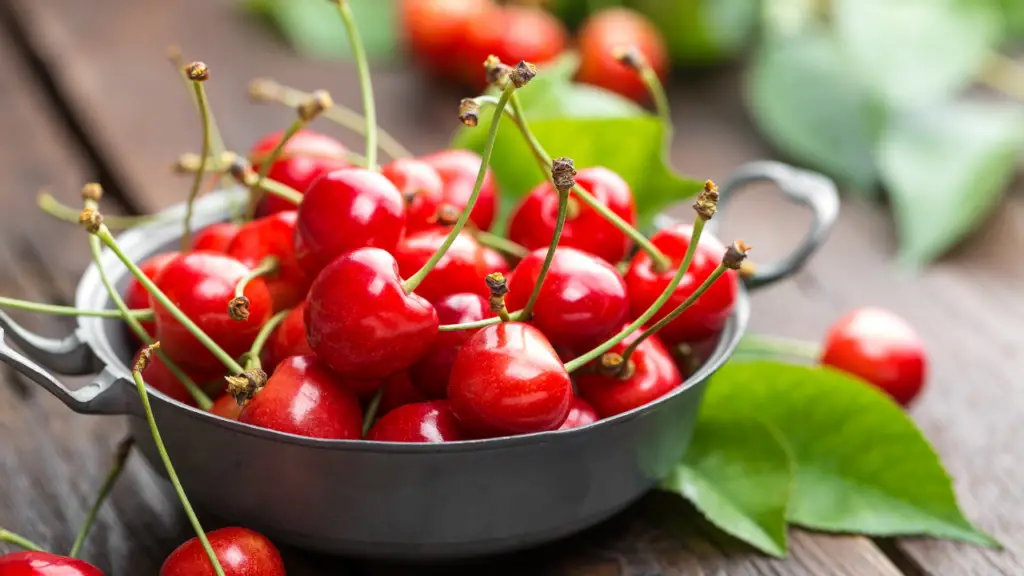
Moreover, more than 30 percent of the cherries were contaminated by a carcinogenic pesticide. This chemical is also banned in European countries.
Peaches:
Of all the conventional samples tested and analyzed by the EWG, more than 99 percent of the peaches had pesticides. There were four different pesticide residues on each peach sample.

It's a very alarming stat and has many people worried that only luck can get them an uncontaminated, locally-produced peach. And it doesn't end here. It might cost you more, but it'll always be the healthier choice.
Pears:
More than half of all the pears tested by the EWG had pesticides. Each pear had several pesticide residues, and some of these were highly harmful herbicides and potent fungicides.

So it's better to spend extra while buying organic produce devoid of such pesticides.
Bell and Hot Peppers:
Bell and Hot Peppers: EWG found traces of pesticides in peppers, whether they were bell peppers or hot peppers. It led to their first-time inclusion on the Dirty Dozen List.

More than 75 percent of bell and hot peppers had high amounts of pesticides on their edible skin. Consequently, EWG insists that people buy organic bell and non-conventional hot peppers. It'll reduce the risk of any disease or condition.
Celery:
Celery needs fertile soil with a suitable climate to grow properly. Due to this, farmers use pesticides and contaminated fertilizers while growing celery commercially.

Ninety-five percent of the non-organic celery samples contained detectable amounts of pesticides in potentially harmful quantities. The dirtiest sample had more than 13 different types of pesticide residues.
Tomatoes:
Tomatoes are a great source of beneficial nutrients, especially vitamins and minerals. But 69 percent of those tested by the EWG were also a great source of harmful pesticides.
No less than four different pesticides contaminated each tomato. It's not that difficult getting your hands on non-conventional tomatoes or organic tomato products, which are surprisingly pretty affordable.

Conventional tomatoes are treated with pesticides and artificial fertilizers. In contrast, the non-conventional ones are forced to protect themselves without external help. This stress that organic tomatoes go through makes tomatoes even more healthy and nutritious.
Other Organic Foods that You Should Buy
The EWG list only includes fruits and vegetables, but there are other foods you must buy organically whenever possible. Similarly, the list consists of some fruits and veggies that don't make it to the EWG's 46 lists.
A healthier lifestyle incorporates all things organic, besides fruits and vegetables too. So go organic for these foods the next time you're heading down the grocery store aisle.
Milk:
Sometimes, conventional milk is not pure and is tampered with. Various growth hormones, antibiotics, and even pesticides have been found in contaminated milk, making it unsafe to drink. Organic milk is different and is devoid of such impurities.
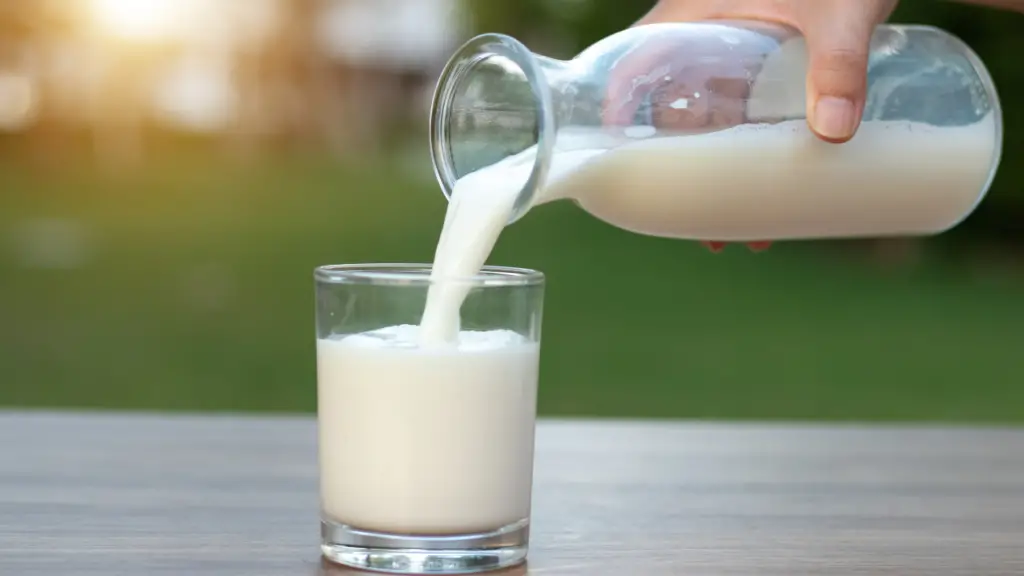
Thus, it's beneficial to health, but organic milk also has a longer shelf life. You can exploit this to make a shift to organic milk. If you don't drink milk that frequently, organic milk will stay fresh and fit for use for a long while. You won't have to buy it that often compared to conventional milk.
Potatoes:
An average American eats about 114 pounds of potatoes in their lifetime. With such a high intake, you need to opt for the safest way out. And the best option, in this case, is to buy the local produce that you know won't have any harmful chemicals.
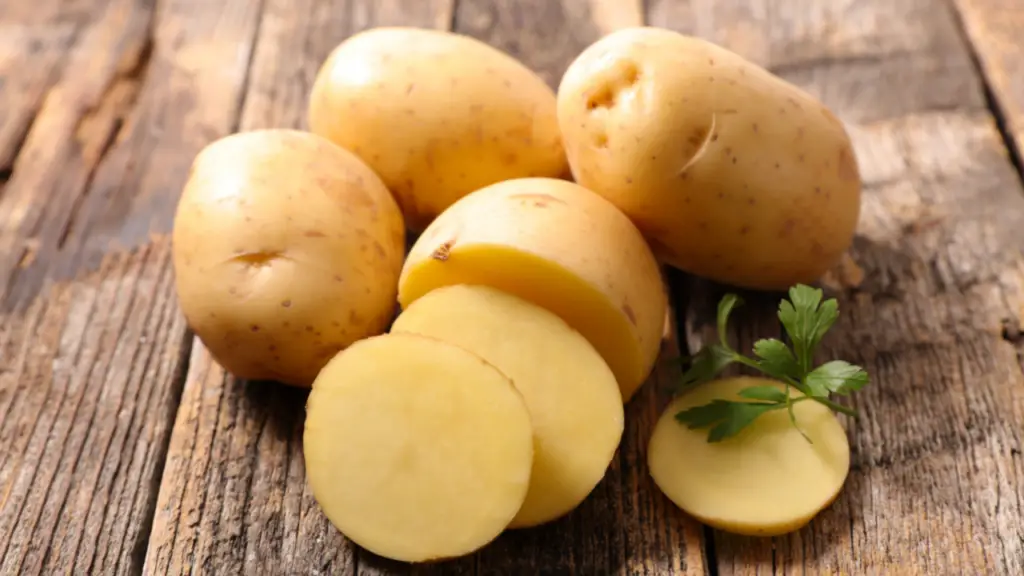
Since potatoes are a root vegetable, conventional spuds are more prone to being a source of pesticides. For this particular reason, organic potatoes are preferred to the conventional variety.
Raisins:
When EWG checked 700 samples of raisins for pests, the results were horrifying. More than 99 percent of the raisins were contaminated with harmful pesticide residues.
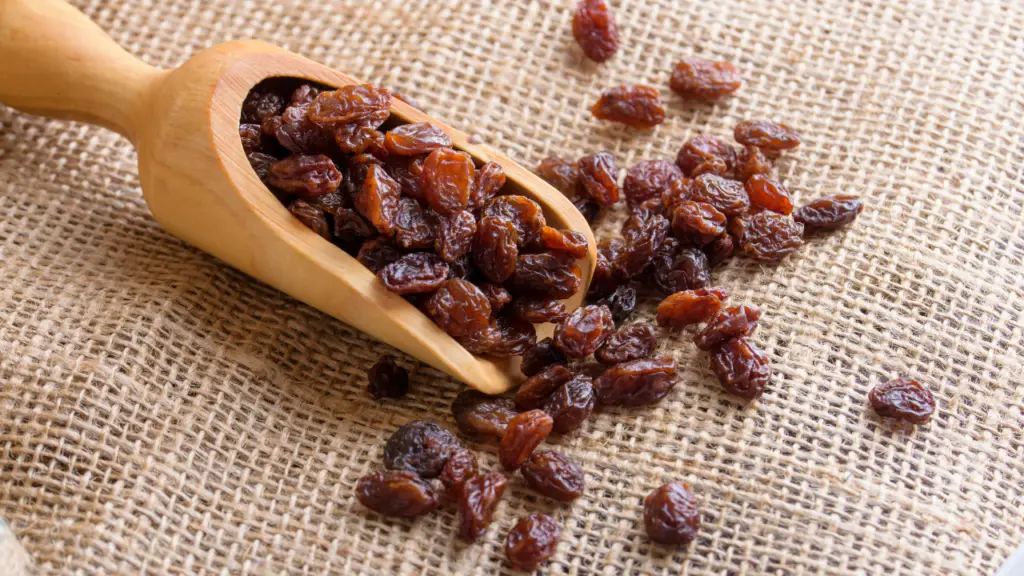
The dirtiest sample had about 26 types of pesticide residues, which is more than the most contaminated sample of strawberries. According to an EWG toxicologist, raisins would rank the highest in the Dirty Dozen List had they been included.
Microwave popcorn:
The FDA banned the use of PFOA to keep the kernels from sticking because of its carcinogenic activity. But the chemical substitute of PFOA isn't that healthy either.
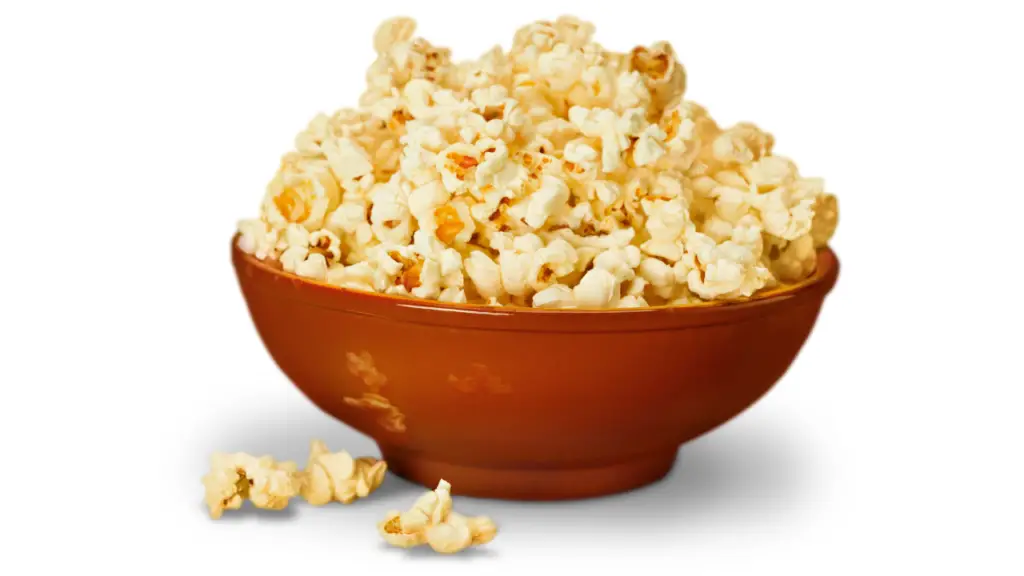
If this wasn't enough, the artificial butter of popcorns could lead to breathing problems. Using organic microwave popcorn will always be a healthier, safer option.
Meat:
Conventionally, cattle are injected with sex hormones to grow unhealthily fast. Many experts believe that some females reach puberty earlier than they should because of these hormones.
Because of this, many people have switched to consuming organic beef. According to several studies, organic beef is also rich in omega-3 fats, which help keep the heart healthy.
When organic and conventional beef were compared, it became evident that organic beef has a higher quantity of antioxidants. Antioxidants help fight free radicals and, in doing so, prevent cancer, Alzheimer's disease, Parkinson's disease, and diabetes.

Poultry and pigs raised on an organic farm grow well and are healthy, so eating their meat is healthy. Conventionally grown poultry and pigs are given food with synthetic fertilizers and pesticides, hampering their natural growth.
They're also injected with antibiotics, which isn't the case with organic poultry and pigs. If these antibiotics are injected regularly, this will lead to antibiotic-resistant bacteria development that cannot die quickly.
These pass from the pig to your plate and eventually to your body. These antibiotic-resistant bacteria and hormones cause severe maladies and disorders, including various endocrine diseases.
Clean 15 List
Avocados:
If you're a guacamole lover, here's some good news. Conventional avocados aren't only safe to use, but they've topped the Clean 15 List. They contain the least amount of pesticides among 46 fruits and vegetables.
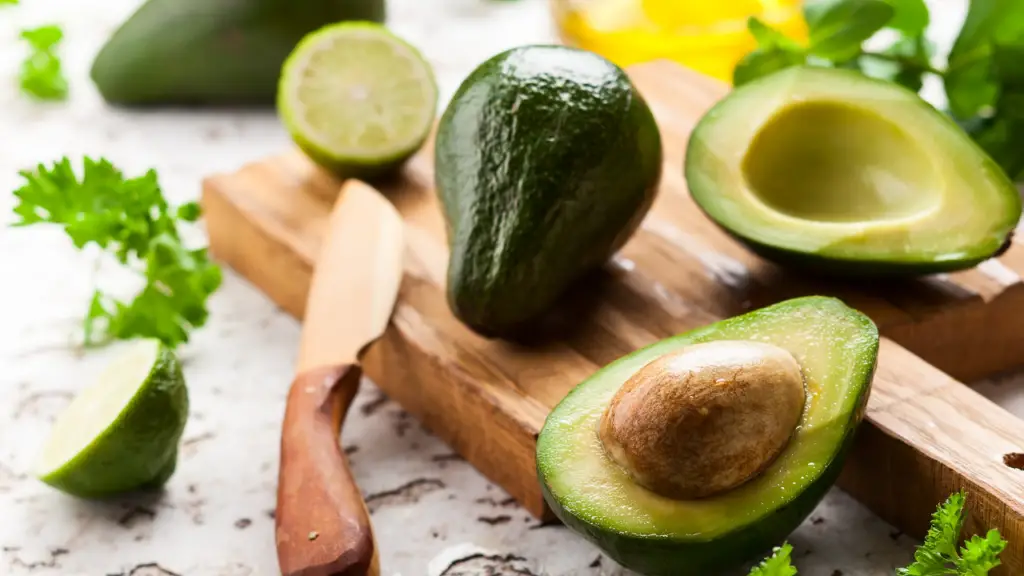
Of all the avocados tested, only 1 percent had pesticides. And in that 1 percent, traces of a single pesticide were found. The rest of the samples were detected pesticide-free. In various recipes, you can use this creamy fruit as a healthy replacement for butter, mayonnaise, and oil.
Sweet corn:
Sweet corn was ranked second on the list of cleanest produce of 2021. Coming just behind avocados, only 2 percent of the total sweet corn had traces of pesticides that the EWG detected. Sweet corn is an excellent source of magnesium and potassium and reduces the risk of cancer and inflammation.
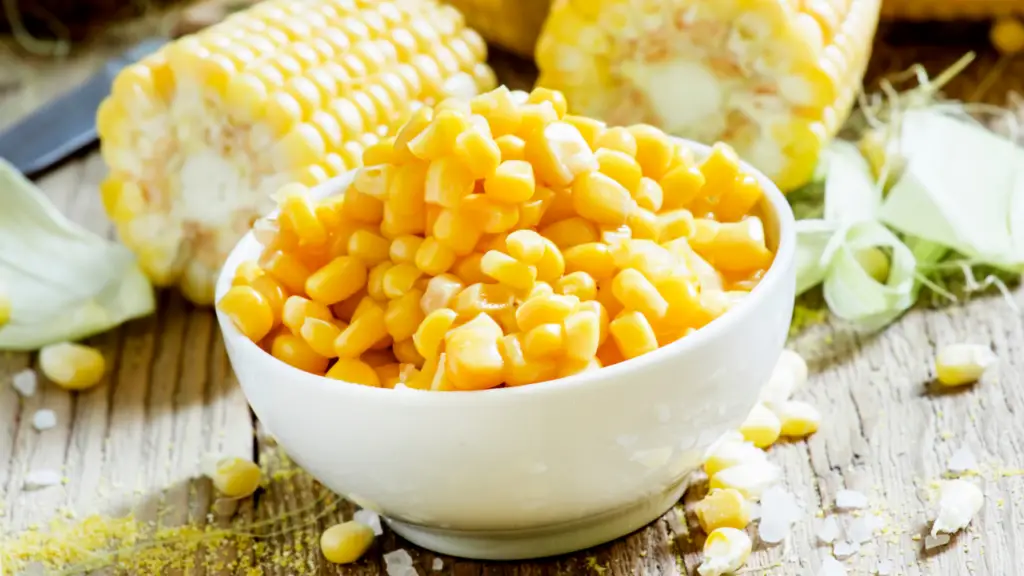
A minute fraction of sweet corn is grown from a genetically modified seed. If you avoid foods produced from genetically modified seeds, go for organic sweet corn instead of the conventional one.
Pineapples:
About 90 percent of the pineapple samples tested by the EWG had no pesticides. Their rugged and thick skin resists any pesticide from being absorbed into the fruit partly due to their rough and thick skin. The edible part is kept safe and uncontaminated as the skin is not consumed.
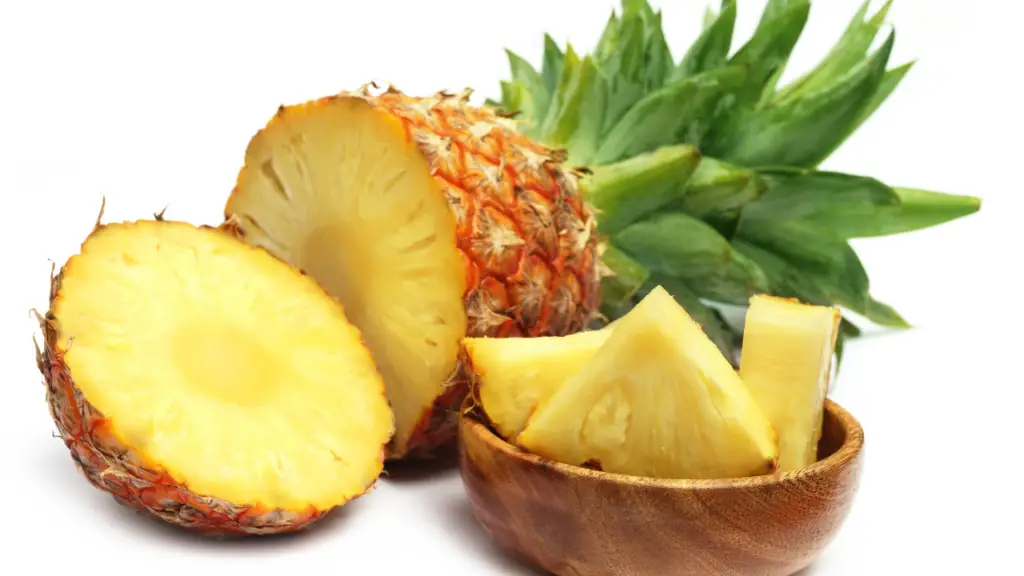
Even a small amount of pineapple eaten daily is enough to fulfill the daily vitamin C requirements. Pineapples also help reduce the inflammation in the sinuses and nose while breaking down proteins for the body.
Onions:
EWG tested numerous conventional onions to check how many of those contained pesticides. Almost 90 percent of the onions had none of the harmful pesticides toxic to human health.

So from a pesticide standpoint, you don't have to worry when buying onions from your local supermarket. Hence, there's no need to buy organic onions as the conventional ones are clean.
Onions make your dish more palatable and benefit the body in numerous ways. They are a great preventive measure for stomach ulcers and are loaded with antioxidants.
Papaya:
Only a tiny minority, about 20 percent, of the total amount of papaya tested was contaminated with pesticides. Papaya is 5th on the Clean 15 List, containing a significantly lower pesticide residue than other produce.
But papaya, like sweet corn, is sometimes grown from genetically engineered seeds. So if you wish to avoid such produce, organic papaya is your best choice. Otherwise, the conventional ones will do just fine.
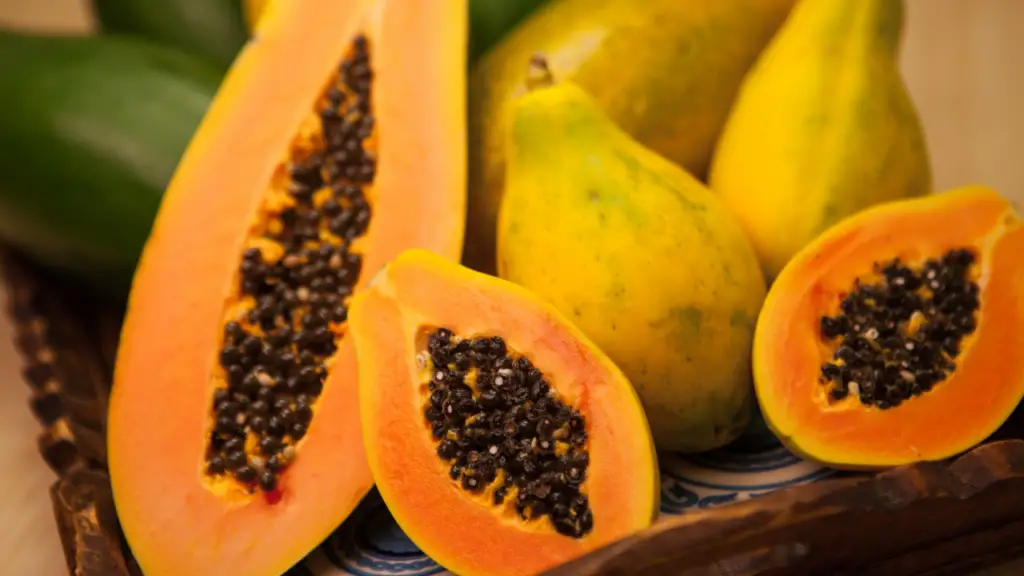
You'll exceed your daily requirement for vitamin C, with some vitamin A, by eating a small quantity of papaya. People with diabetes are encouraged to eat papayas more frequently as they help reduce blood sugar levels. Many studies have also proved that papayas lower blood pressure and aid in digestion.
Sweet peas: (Frozen)
Sweet peas: Pesticides are rarely used on sweet peas. When tested, a great majority of these came out to be pesticide-free. While the remainder, about 20 percent, only had pesticides.
UPON FURTHER SCRUTINY, the EWG observed that only two pesticides were on this small minority. Sweet peas are an excellent source of dietary fiber. Therefore, conventional sweet peas are relatively safe to eat.
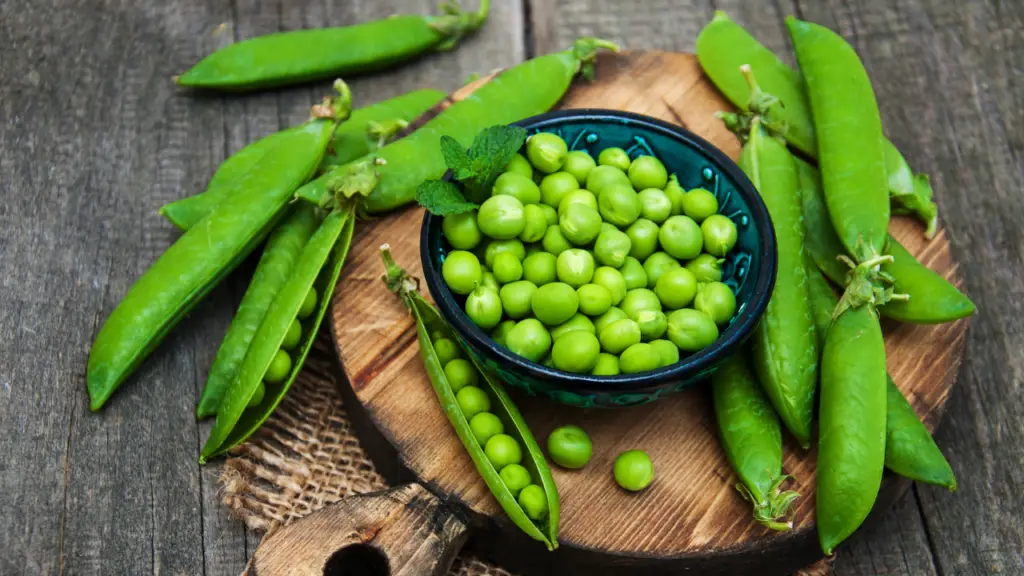
Their thick pod also serves as an extra layer of protection from pesticides. For this reason, many people add frozen sweet peas to casseroles, soups, and pasta.
Eggplant:
Although various pesticides are used to grow an eggplant commercially, they seldom stay on the skin. Consequently, EGW included eggplant in the Clean 15 List of 2021 and declared the usage of conventional eggplant safe. Unfortunately, it is not on the clean 15 list for 2022.
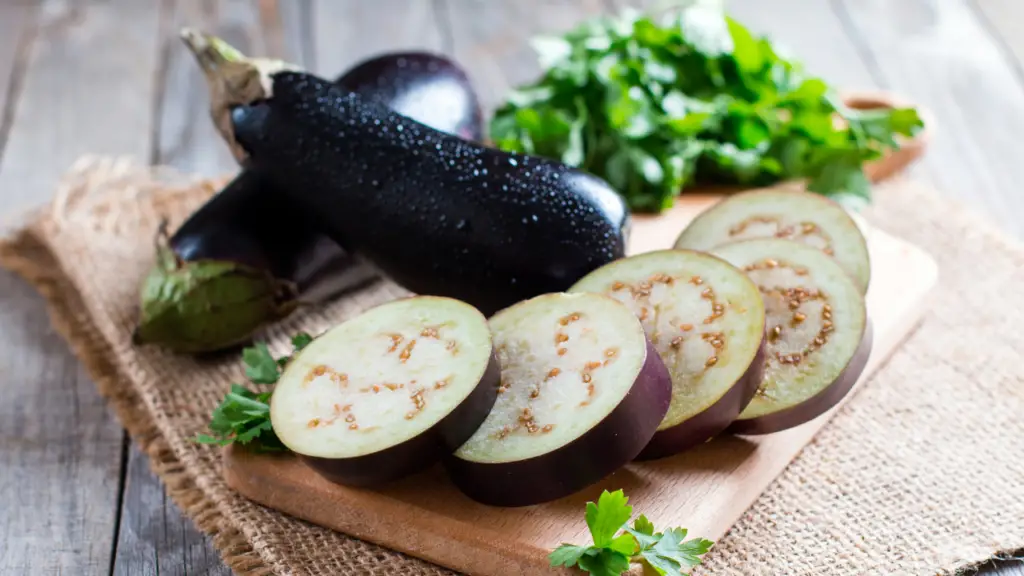
Eggplants have been found to prevent cancer and several cardiovascular disorders. They contain a chemical that assists in preventing memory loss and other mental complications resulting from old age. With seasonings and oil, you can grill eggplant to make delicious recipes.
Asparagus:
After a detailed analysis, asparagus is one of those vegetables with a small likelihood of containing pesticide residue. They tested a large batch of this vegetable, and most of it had no traces of any pesticide.
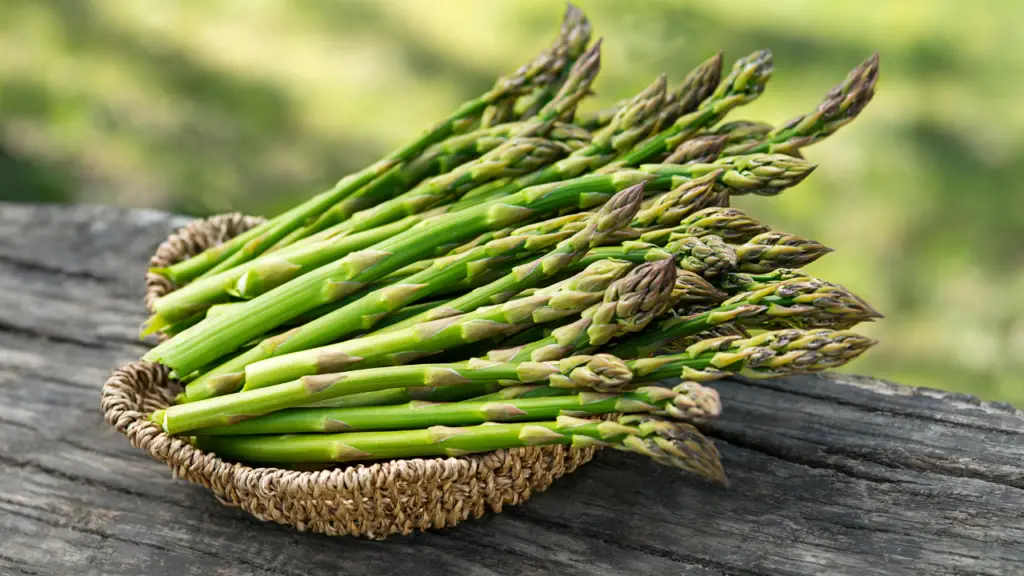
Hence, asparagus is ranked 8th on EWG's Clean 15 List. Many dietitians recommend grilling trimmed asparagus after brushing them with olive oil as a tasty treat. Some people also consider it as a suitable substitute for french fries.
Asparagus contains a bulk of vitamin C, E, and K, making it a healthy choice. Its anti-inflammatory properties are renowned in the medical field.
Broccoli:
Conventional broccoli is something that everyone should incorporate into their diet. It is excellent for preventing cancer and contains a variety of vital nutrients. It is safe to consume as only a minority of these had any pesticides when the EWG tested them.
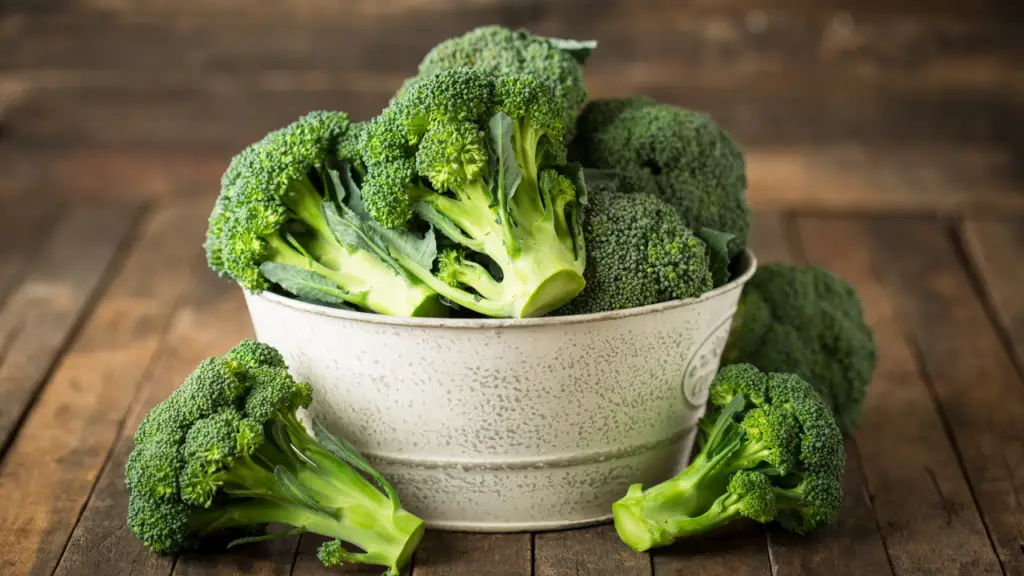
This green vegetable will never let you down, even in the taste department. This member of the broccoli family makes an exceptional combination with cauliflower to make a loaded cauliflower broccoli casserole.
UPDATE: EWG did not have broccoli listed in the clean 15 in 2022.
Cabbage:
The pesticide residue in this leafy vegetable is almost non-existent. Almost 14 percent of the total cabbages had traces of pesticide. Only two among a total of 700 samples had more than one pesticide.

Thus, you can cross off cabbage in the list of organic items you were thinking of buying. Just like its several colors, there are several health benefits of cabbage. Similar to other cruciferous vegetables, cabbage also possesses cancer-fighting properties.
Whether it is red, white, or purple, there's an impressive array of nutrients in a single cup of cooked cabbage.
Kiwi:
There's no point in buying organic kiwi as the pesticide residue in these is almost indiscernible. Though most prefer not to eat the skins, eating their skins is safe and healthy, as it provides 50 percent more fiber than the fruit itself.

It can be a perfect addition to your salad or smoothies if you don't want to eat it. Kiwi fruits are a great way to get your dietary calcium and vitamin C. They also help alleviate or reduce the symptoms of asthma while preventing stroke.
Cauliflower:
You don't have to buy organic cauliflower, as the conventional one is safe enough. According to EWG, most of the samples collected were devoid of any pesticide.
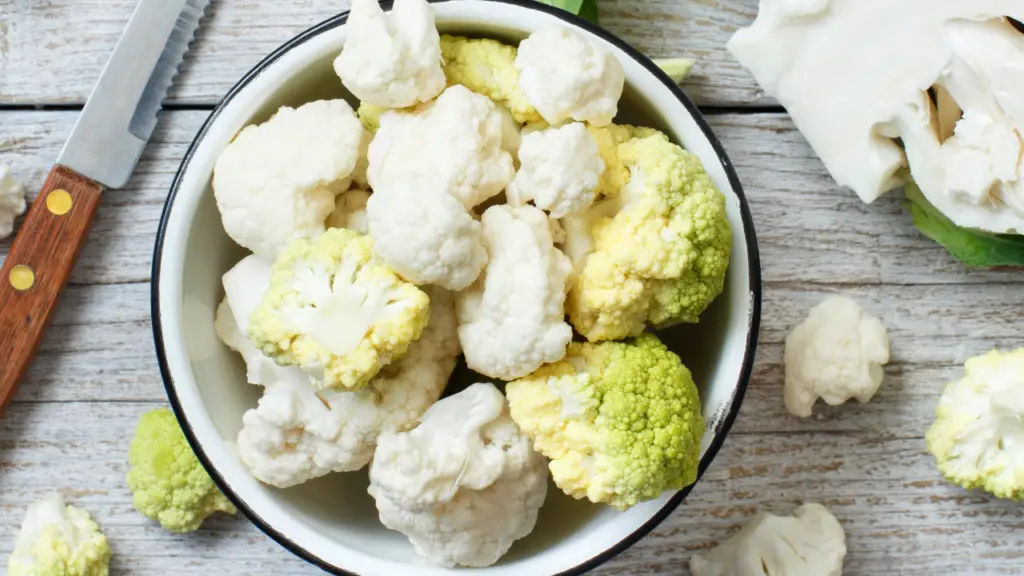
Low calories and abundant nutrients make an excellent stock, especially vitamins and cauliflower leaves. Cauliflower, the cousin of the broccoli family, also helps the body in detoxification.
NOTE: Cauliflower and broccoli are not listed on the 2022 clean 15 list.
Mushrooms:
If the fear of pesticide residue in mushrooms causes stress, you don't have to worry anymore. In their 2021 list, the EWG concluded that most of the mushrooms they tested didn't have pesticide residues.
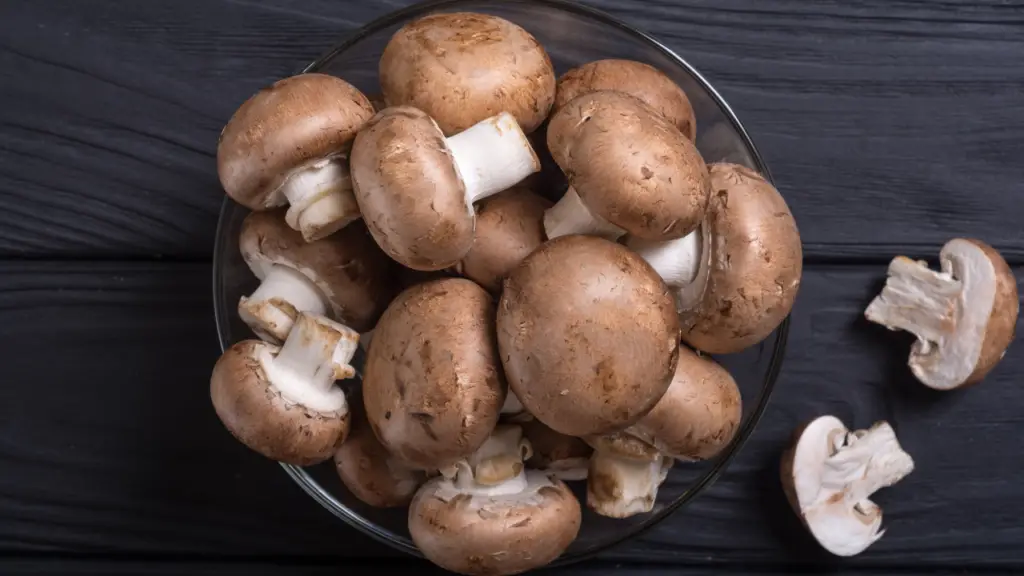
As a result, they declared that conventional mushrooms are safe for usage. There is no need to buy organic varieties.
Honeydew melon:
After mushrooms, the following fruit with the least amount of pesticides left as a residue is honeydew melon. It might not be everybody's first choice, melon, but many people were mesmerized by its delicious taste after trying it.
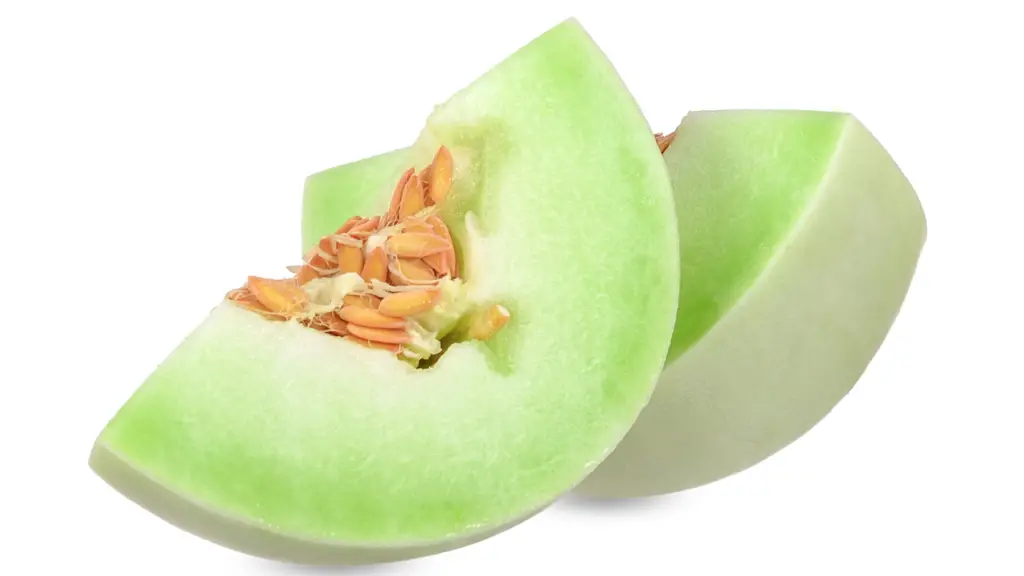
It tastes good, but it also aids the body in normal growth and development. You can enjoy honeydew lemon with various dishes, such as fruit salads, frozen desserts, and smoothies.
Cantaloupe:
If some fruit has a rugged, tough peel, it helps the inner edible part stay protected from pesticides. Similarly, the thick skin of a cantaloupe keeps the fruit and its juicy insides pesticide-free.
Cantaloupe lovers can eat this fruit in several ways. Cantaloupe is involved in maintaining proper eye, hair, and skin health and regulates blood pressure.
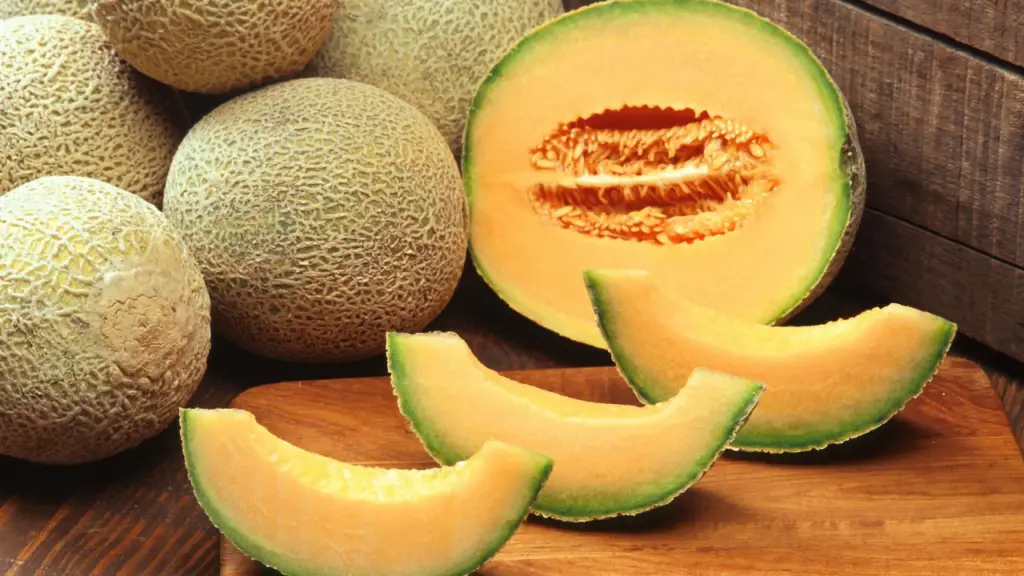
It is an excellent source of vitamins such as vitamin B, C, and K. Adding frozen chunks to a smoothie is also a great way to enjoy this delicious fruit.
Other foods that You Can Buy
Like the general organic foods list, these are some food items you can get at your local store.
Seafood:
Choosing wild-caught is always the best option. And, buy fish low in mercury, as metal can be detrimental to your nervous system.
Maple syrup:
100 percent maple syrup bought from the store is a safe option. Maple syrup is harvested not to have to be treated with toxic fertilizers or pesticides. Enjoy using tasty syrup with various dishes, such as popcorn, pie, roasted vegetables, or in place of white sugar, 1 to 1.
Tips for Grocery Shopping When Going Organic
The shift to an organic lifestyle can be done slowly and steadily. After all, you need to take care of your health and wallet. We have some tips that can help you out:
Prioritize Your Foods:
Going organic means prioritizing the foods you need to buy organic and those you don't. Experts suggest prioritizing, i.e., buying organic for foods most contaminated and most consumed by you and your family.
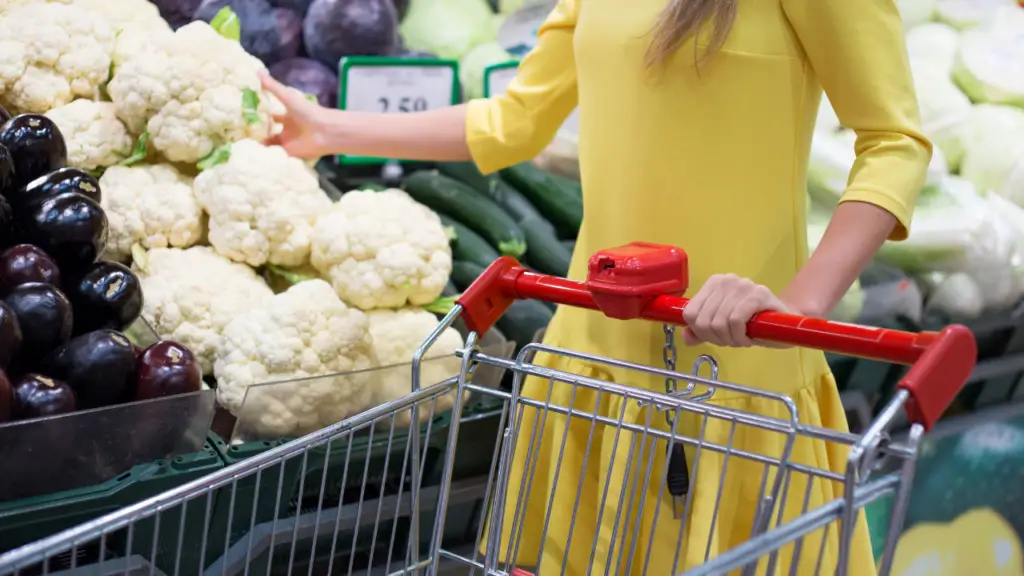
You can go conventional for the Clean 15 and less-contaminated foods of the Dirty Dozens. Another tip is to go conventional for foods whose flesh you don't consume since that's where most pesticides hide.
Frozen is Convenient:
Frozen fruits and vegetables are sometimes cheaper than fresh, organic produce. That's a win for your bank account. Some studies suggest that frozen produce also has lesser pesticide residue than fresh produce. You can gain the nutritional benefits all year round without spoilage too.
Buy Organic in Bulk:
Buying organic produce in bulk is another tip to save your hard-earned money. Bulk produce often comes cheaper than buying your fruits and vegetables in small amounts every week.
Look for a grocery store in your local neighborhood that stocks up on bulk produce and get shopping! You can always freeze most vegetables and fruits if you find you have more than you can eat before it spoils.
Wash the produce Properly:
Water eliminates 75-80% of the pesticides on the flesh of fruits and vegetables. Even if you don't believe it, wash the produce you buy correctly, organic or conventional, each time.
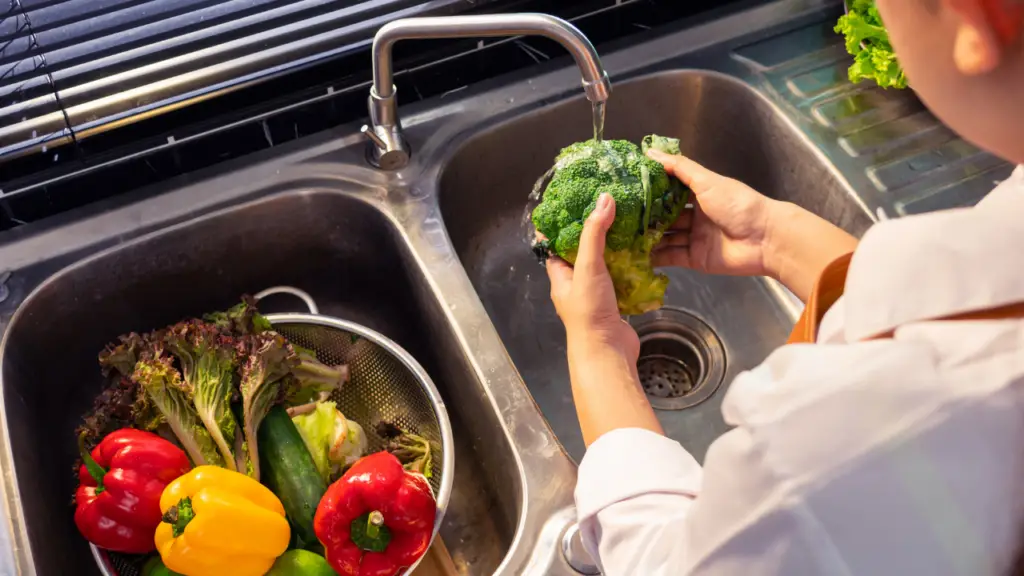
Rinse and scrub it as thoroughly as possible. For produce with crevices, e.g., berries, soak them in water overnight.
Don't Pressure Yourself:
The organic lifestyle is more challenging for most. After all, not many comprehend the budget difference they'll have on their hands after going organic. Don't pressure yourself into buying every organic item you lay your eyes on.
Nor do you have to abandon the conventional options permanently. Take it one step at a time and stick to what you're comfortable with. Your organic lifestyle change can be a 50/50 balance of organic and conventional.
In Conclusion
Go organic wherever you can, and you'll immediately notice the many health benefits of eating an organic diet!
The hazards of conventional foods or the overwhelming organic shift are not meant to scare you from a healthy lifestyle as long as you're balancing between the two and looking after your health.
But, remember, organic is typically better.


